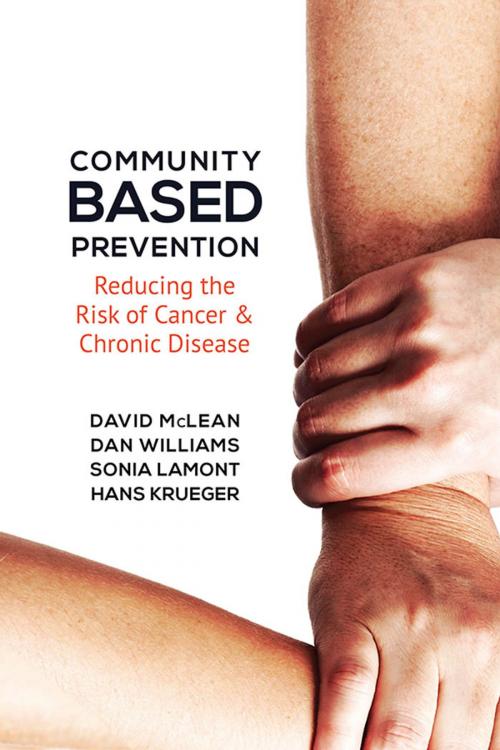Community-Based Prevention
Reducing the Risk of Cancer and Chronic Disease
Nonfiction, Health & Well Being, Medical, Reference, Public Health, Social & Cultural Studies, Political Science, Government, Public Policy, Health, Ailments & Diseases| Author: | David McLean, Dan Williams, Hans Krueger, Sonia Lamont | ISBN: | 9781442662315 |
| Publisher: | University of Toronto Press, Scholarly Publishing Division | Publication: | April 1, 2013 |
| Imprint: | Language: | English |
| Author: | David McLean, Dan Williams, Hans Krueger, Sonia Lamont |
| ISBN: | 9781442662315 |
| Publisher: | University of Toronto Press, Scholarly Publishing Division |
| Publication: | April 1, 2013 |
| Imprint: | |
| Language: | English |
Cancer and chronic disease are a rapidly increasing global health burden: according to the Milken Institute, the annual cost to the national US economy of the seven most common chronic conditions will rise to $4.2 trillion by 2023. The data are just as dramatic in Canada, Europe, Australia, and increasingly, in countries in the developing world. As communities, governments, and health organizations worldwide struggle to avoid being swamped by health care costs – not to mention the impact of suffering and poor quality of life – the only long-term, sustainable hope must be based on prevention efforts.
This book presents a promising new approach to educating, engaging, empowering, and generating action within communities as part of that broader prevention agenda. The authors review representative global experiences with community based prevention educators, focusing on the prevention coordination work that can be accomplished within geographical areas ranging from local communities to broader regions. Among the findings they reveal in this book are the fundamental elements of successful Community Based Prevention programs – skilled staff, high-quality evaluation, and sustained investment in prevention efforts.
Cancer and chronic disease are a rapidly increasing global health burden: according to the Milken Institute, the annual cost to the national US economy of the seven most common chronic conditions will rise to $4.2 trillion by 2023. The data are just as dramatic in Canada, Europe, Australia, and increasingly, in countries in the developing world. As communities, governments, and health organizations worldwide struggle to avoid being swamped by health care costs – not to mention the impact of suffering and poor quality of life – the only long-term, sustainable hope must be based on prevention efforts.
This book presents a promising new approach to educating, engaging, empowering, and generating action within communities as part of that broader prevention agenda. The authors review representative global experiences with community based prevention educators, focusing on the prevention coordination work that can be accomplished within geographical areas ranging from local communities to broader regions. Among the findings they reveal in this book are the fundamental elements of successful Community Based Prevention programs – skilled staff, high-quality evaluation, and sustained investment in prevention efforts.















